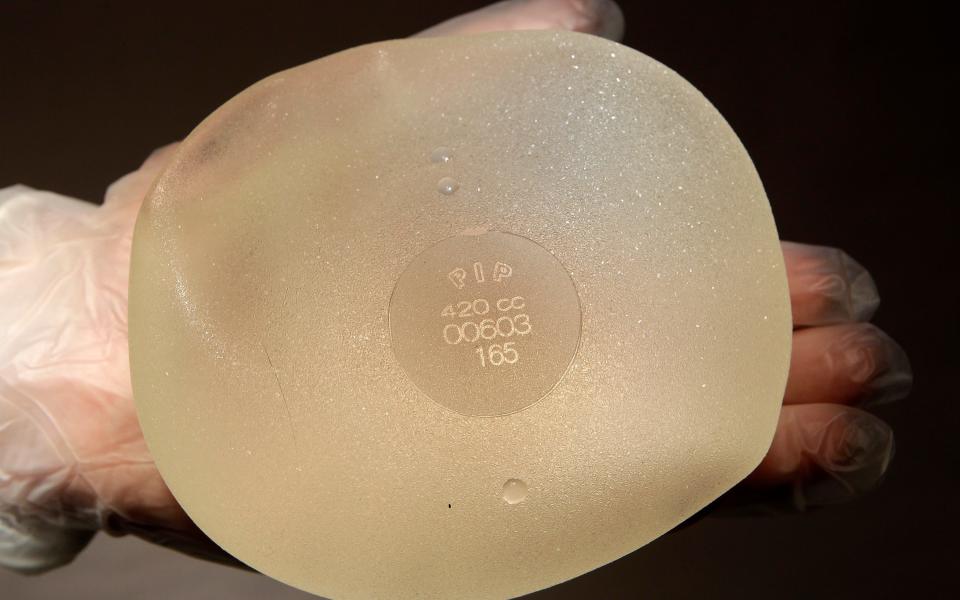Breast implants could stop heart attack tests from working, study finds

Women with breast implants could be left at greater risk from heart attacks because the devices may block detection of symptoms, a study suggests.
Researchers found that routine tests used to diagnose cardiac problems were far less reliable in women who had undergone breast enlargement surgery.
Electrocardiogram (ECG) tests are given to patients when they have suffered a suspected heart attack.
Electrodes are used to assess the rhythm and electrical activity of the heart, to detect abnormalities and determine which treatment is required.
But the new study presented at a heart conference in Vienna, found that readings appeared to be far less accurate, when women had breast implants - leaving them at risk of being falsely diagnosed with a heart attack, or symptoms being missed.
Every year around 25,000 women in the UK have breast implants.

Lead author Dr Sok-Sithikun Bun, a cardiologist at Princess Grace Hospital in Monaco, said: "Our experience shows that breast implants make it difficult to see the heart with echocardiography because ultrasound cannot penetrate through the implant. We wanted to find out if implants also disrupt an ECG."
Researchers assessed 28 women with breast implants and 20 women of the same age who did not have breast implants, all of whom were healthy and had no known structural heart disease.
ECGs were performed on all of the women and recordings were analysed by two experienced electrophysiologists.
Between 38 per cent and 57 per cent of the scans from the implant group were interpreted as "abnormal" by these experts. Yet when further tests were carried out, almost every women was found to be perfectly healthy.
"We think the abnormal ECG recordings were false readings due to the implants," said Dr Bun.
Researchers suggested the implant might be blocking electrical signals coming from the heart, or forcing the electrodes into a different position.
He advised women with breast implants to inform their doctor before having an ECG.
"Doctors should be aware that ECG interpretation can be misleading in patients with breast implants. In case of any doubts regarding the diagnosis, blood tests need to be performed depending on the symptoms."
And he said women intending to have breast enlargement surgery could consider having an ECG beforehand so that they have one on file.
He said: "We do not want to frighten patients. But it may be wise to have an ECG before a breast implant operation. The ECG can be kept on file and used for comparison if the patient ever needs another ECG."
Dr Mike Knapton, associate medical director at the British Heart Foundation, said: “ECGs are commonly used test to investigate people with possible heart problems. Correctly interpreting the results of an ECG can be critical in making an accurate diagnosis and providing the right treatment for patients. It isn’t the only way to diagnose a heart condition, but there are a significant number of women who have had breast implants, either following treatment for breast cancer or as a cosmetic procedure.
"These findings will help those reading an ECG to avoid the risk of a false diagnosis and any unnecessary follow-up tests or treatment.”

 Yahoo News
Yahoo News 
